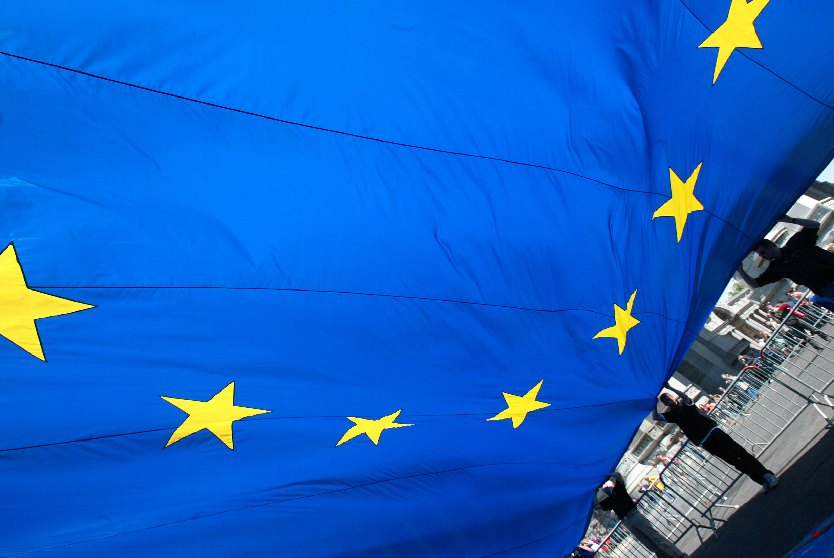The European Union (EU) has reinforced its commitment to bolstering the Nigerian dairy sector, recognizing its potential for economic growth, job creation, and improved livelihoods. This commitment stems from an understanding of the intricate challenges faced by local dairy farmers, which directly impact both the quantity and quality of milk produced. The EU’s focus is multifaceted, encompassing support for enhanced storage capabilities, improved access to crucial production inputs such as feed and water, and addressing the pressing concerns of farmers like water scarcity, the affordability of animal healthcare, and the procurement of quality feed. This comprehensive approach aims to strengthen the entire dairy value chain, from individual farmers to processors, ultimately benefiting consumers with increased access to locally produced dairy products.
A recent visit by an EU delegation to Naturell Dairy, a Kaduna-based dairy processor and member of the European Chamber of Commerce in Nigeria (EuroCham Nigeria), provided valuable insights into the realities of dairy farming and processing in Nigeria. This visit underscored the EU’s dedication to tailoring its support to address the specific needs of the sector. The EU’s support is aligned with its broader agricultural development strategy in Nigeria, which prioritizes income generation, job creation, and the growth of Micro, Small, and Medium Enterprises (MSMEs). The dairy sector, being a significant contributor to these goals, stands to benefit substantially from this targeted intervention.
Inga Stefanowicz, Team Leader for Green and Digital Economy at the EU Delegation to Nigeria and ECOWAS, emphasized the EU’s role as a donor organization funding numerous initiatives in Nigeria. She highlighted the importance of agriculture, and particularly the dairy sector, as drivers of economic growth and employment. Acknowledging the challenges faced by the sector, Stefanowicz reiterated the EU’s commitment to supporting dairy producers, farmers, and other stakeholders across the value chain. This support is aimed at increasing incomes, creating opportunities, and improving the overall health of the population by enhancing access to nutritious dairy products. The EU’s strategy is designed to be holistic, ensuring benefits accrue to all involved.
Naturell Dairy, as a key player in the Nigerian dairy industry, provided the EU delegation with firsthand experience of the challenges and opportunities within the sector. Christian Idakwoji, Sales Manager at Naturell Dairy, explained the company’s model of sourcing milk directly from local farmers and its commitment to supporting them through training and livelihood enhancement programs. He underscored the logistical hurdles faced in transporting milk without spoilage due to the inadequate cold chain infrastructure, particularly the lack of cooling vans and vehicles. While Naturell Dairy has implemented measures like roadside cooling points and farmer training in milk handling, Idakwoji stressed the need for further support in training aggregators and improving logistics to minimize spoilage and enhance overall efficiency.
The perspectives of local dairy farmers and milk aggregators further illuminated the challenges and opportunities within the sector. Abubakar Muhammed, a local dairy farmer, highlighted the critical issues of water scarcity, high vaccine costs, and inadequate feed, which directly impact the health and productivity of his cows. Access to clean water, affordable medication, and quality feed are crucial for improving milk yields and increasing farmers’ incomes. Stephen Joshua, a milk aggregator working with Naturell Dairy, welcomed the EU’s intervention, pointing to the low average milk yield per cow due to poor feed quality. He expressed optimism that the EU’s support would lead to reduced milk spoilage and a significant increase in productivity, benefiting both farmers and processors.
The EU’s intervention in the Nigerian dairy sector represents a significant opportunity for growth and development. By addressing the critical challenges faced by farmers and processors, such as access to water, affordable animal healthcare, quality feed, and improved storage and transportation infrastructure, the EU aims to unlock the sector’s full potential. This support promises to not only increase milk production and improve the livelihoods of farmers and other stakeholders but also enhance the availability and accessibility of nutritious dairy products for Nigerian consumers. The collaboration between the EU, local processors like Naturell Dairy, and farmers themselves is crucial for creating a sustainable and thriving dairy industry in Nigeria.


